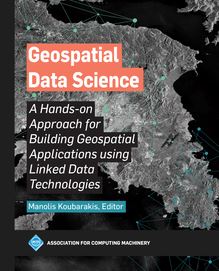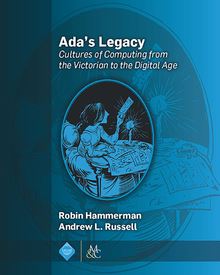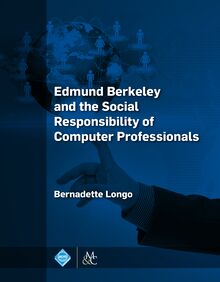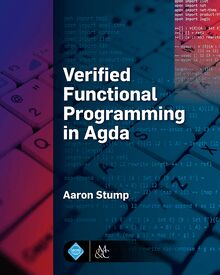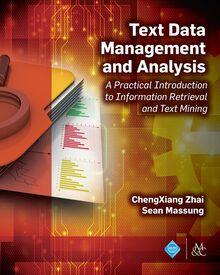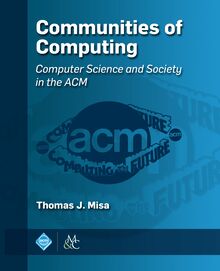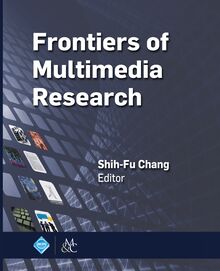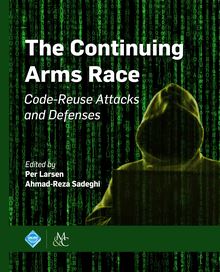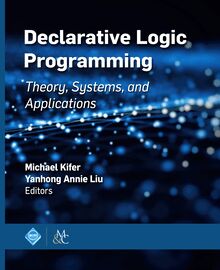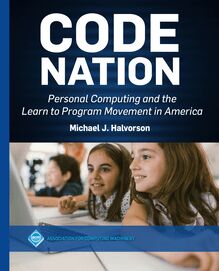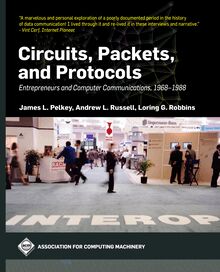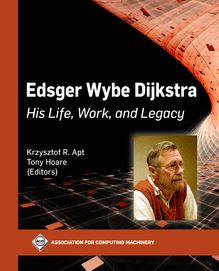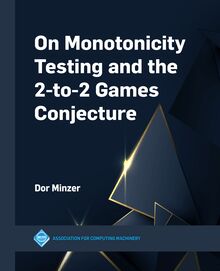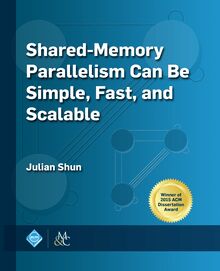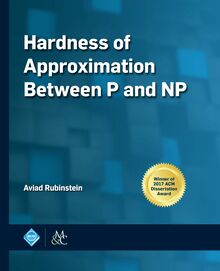-
 Univers
Univers
-
 Ebooks
Ebooks
-
 Livres audio
Livres audio
-
 Presse
Presse
-
 Podcasts
Podcasts
-
 BD
BD
-
 Documents
Documents
-
- Cours
- Révisions
- Ressources pédagogiques
- Sciences de l’éducation
- Manuels scolaires
- Langues
- Travaux de classe
- Annales de BEP
- Etudes supérieures
- Maternelle et primaire
- Fiches de lecture
- Orientation scolaire
- Méthodologie
- Corrigés de devoir
- Annales d’examens et concours
- Annales du bac
- Annales du brevet
- Rapports de stage
La lecture à portée de main
Vous pourrez modifier la taille du texte de cet ouvrage
Découvre YouScribe en t'inscrivant gratuitement
Je m'inscrisFrontiers of Multimedia Research , livre ebook
Découvre YouScribe en t'inscrivant gratuitement
Je m'inscrisEn savoir plus
Vous pourrez modifier la taille du texte de cet ouvrage
En savoir plus

Description
The field of multimedia is unique in offering a rich and dynamic forum for researchers from “traditional” fields to collaborate and develop new solutions and knowledge that transcend the boundaries of individual disciplines. Despite the prolific research activities and outcomes, however, few efforts have been made to develop books that serve as an introduction to the rich spectrum of topics covered by this broad field. A few books are available that either focus on specific subfields or basic background in multimedia. Tutorial-style materials covering the active topics being pursued by the leading researchers at frontiers of the field are currently lacking.
In 2015, ACM SIGMM, the special interest group on multimedia, launched a new initiative to address this void by selecting and inviting 12 rising-star speakers from different subfields of multimedia research to deliver plenary tutorial-style talks at the ACM Multimedia conference for 2015. Each speaker discussed the challenges and state-of-the-art developments of their prospective research areas in a general manner to the broad community. The covered topics were comprehensive, including multimedia content understanding, multimodal human-human and human-computer interaction, multimedia social media, and multimedia system architecture and deployment.
Following the very positive responses to these talks, the speakers were invited to expand the content covered in their talks into chapters that can be used as reference material for researchers, students, and practitioners. Each chapter discusses the problems, technical challenges, state-of-the-art approaches and performances, open issues, and promising direction for future work. Collectively, the chapters provide an excellent sampling of major topics addressed by the community as a whole. This book, capturing some of the outcomes of such efforts, is well positioned to fill the aforementioned needs in providing tutorial-style reference materials for frontier topics in multimedia.
At the same time, the speed and sophistication required of data processing have grown. In addition to simple queries, complex algorithms like machine learning and graph analysis are becoming common. And in addition to batch processing, streaming analysis of real-time data is required to let organizations take timely action. Future computing platforms will need to not only scale out traditional workloads, but support these new applications too.
This book, a revised version of the 2014 ACM Dissertation Award winning dissertation, proposes an architecture for cluster computing systems that can tackle emerging data processing workloads at scale. Whereas early cluster computing systems, like MapReduce, handled batch processing, our architecture also enables streaming and interactive queries, while keeping MapReduce's scalability and fault tolerance. And whereas most deployed systems only support simple one-pass computations (e.g., SQL queries), ours also extends to the multi-pass algorithms required for complex analytics like machine learning. Finally, unlike the specialized systems proposed for some of these workloads, our architecture allows these computations to be combined, enabling rich new applications that intermix, for example, streaming and batch processing.
We achieve these results through a simple extension to MapReduce that adds primitives for data sharing, called Resilient Distributed Datasets (RDDs). We show that this is enough to capture a wide range of workloads. We implement RDDs in the open source Spark system, which we evaluate using synthetic and real workloads. Spark matches or exceeds the performance of specialized systems in many domains, while offering stronger fault tolerance properties and allowing these workloads to be combined. Finally, we examine the generality of RDDs from both a theoretical modeling perspective and a systems perspective.
This version of the dissertation makes corrections throughout the text and adds a new section on the evolution of Apache Spark in industry since 2014. In addition, editing, formatting, and links for the references have been added.
Table of Contents: Preface / PART I: MULTIMEDIA CONTENT ANALYSIS / 1. Deep Learning for Video Classification and Captioning / 2. Audition for Multimedia Computing / 3. Multimodal Analysis of Free-standing Conversational Groups / 4. Encrypted Domain Multimedia Content Analysis / 5. Efficient Similarity Search / PART II: HUMAN-CENTERED MULTIMEDIA COMPUTING / 6. Social-Sensed Multimedia Computing / 7. Situation Recognition Using Multimodal Data / 8. Hawkes Processes for Events in Social Media / 9. Utilizing Implicit User Cues for Multimedia Analytics / PART III: MULTIMEDIA COMMUNICATION AND SYSTEMS / 10. Multimedia Fog Computing: Minions in the Cloud and Crowd / 11. Cloud Gaming / Bibliography / Index / Editor Biography
Sujets
Informations
| Publié par | Association for Computing Machinery and Morgan & Claypool Publishers |
| Date de parution | 03 janvier 2018 |
| Nombre de lectures | 0 |
| EAN13 | 9781970001068 |
| Langue | English |
| Poids de l'ouvrage | 10 Mo |
Informations légales : prix de location à la page 0,3598€. Cette information est donnée uniquement à titre indicatif conformément à la législation en vigueur.
Extrait
Frontiers of Multimedia Research
ACM Books
Editor in Chief
M. Tamer zsu, University of Waterloo
ACM Books is a new series of high-quality books for the computer science community, published by ACM in collaboration with Morgan Claypool Publishers. ACM Books publications are widely distributed in both print and digital formats through booksellers and to libraries (and library consortia) and individual ACM members via the ACM Digital Library platform.
Frontiers of Multimedia Research
Editor: Shih-Fu Chang, Columbia University
2018
The Continuing Arms Race: Code-Reuse Attacks and Defenses
Editors: Thorsten Holz, Ruhr-Universit t Bochum
Per Larsen, Immunant, Inc .
Ahmad-Reza Sadeghi, Technische Universit t Darmstadt
2018
Shared-Memory Parallelism Can Be Simple, Fast, and Scalable
Julian Shun, University of California, Berkeley
2017
Computational Prediction of Protein Complexes from Protein Interaction Networks
Sriganesh Srihari, The University of Queensland Institute for Molecular Bioscience Chern Han Yong, Duke-National University of Singapore Medical School
Limsoon Wong, National University of Singapore
2017
The Handbook of Multimodal-Multisensor Interfaces, Volume 1: Foundations, User Modeling, and Common Modality Combinations
Editors: Sharon Oviatt, Incaa Designs
Bj rn Schuller, University of Passau and Imperial College London
Philip R. Cohen, Voicebox Technologies
Daniel Sonntag, German Research Center for Artificial Intelligence (DFKI)
Gerasimos Potamianos, University of Thessaly
Antonio Kr ger, German Research Center for Artificial Intelligence (DFKI)
2017
Communities of Computing: Computer Science and Society in the ACM
Thomas J. Misa, Editor, University of Minnesota
2017
Text Data Management and Analysis: A Practical Introduction to Information Retrieval and Text Mining
ChengXiang Zhai, University of Illinois at Urbana-Champaign
Sean Massung, University of Illinois at Urbana-Champaign
2016
An Architecture for Fast and General Data Processing on Large Clusters
Matei Zaharia, Stanford University
2016
Reactive Internet Programming: State Chart XML in Action
Franck Barbier, University of Pau, France
2016
Verified Functional Programming in Agda
Aaron Stump, The University of Iowa
2016
The VR Book: Human-Centered Design for Virtual Reality
Jason Jerald, NextGen Interactions
2016
Ada s Legacy: Cultures of Computing from the Victorian to the Digital Age
Robin Hammerman, Stevens Institute of Technology
Andrew L. Russell, Stevens Institute of Technology
2016
Edmund Berkeley and the Social Responsibility of Computer Professionals
Bernadette Longo, New Jersey Institute of Technology
2015
Candidate Multilinear Maps
Sanjam Garg, University of California, Berkeley
2015
Smarter Than Their Machines: Oral Histories of Pioneers in Interactive Computing
John Cullinane, Northeastern University; Mossavar-Rahmani Center for Business and Government, John F. Kennedy School of Government, Harvard University
2015
A Framework for Scientific Discovery through Video Games
Seth Cooper, University of Washington
2014
Trust Extension as a Mechanism for Secure Code Execution on Commodity Computers
Bryan Jeffrey Parno, Microsoft Research
2014
Embracing Interference in Wireless Systems
Shyamnath Gollakota, University of Washington
2014
Frontiers of Multimedia Research
Shih-Fu Chang
Columbia University
Copyright 2018 by the Association for Computing Machinery and Morgan Claypool Publishers
All rights reserved. No part of this publication may be reproduced, stored in a retrieval system, or transmitted in any form or by any means-electronic, mechanical, photocopy, recording, or any other except for brief quotations in printed reviews-without the prior permission of the publisher.
Designations used by companies to distinguish their products are often claimed as trademarks or registered trademarks. In all instances in which Morgan Claypool is aware of a claim, the product names appear in initial capital or all capital letters. Readers, however, should contact the appropriate companies for more complete information regarding trademarks and registration.
Frontiers of Multimedia Research
Shih-Fu Chang, editor
books.acm.org
www.morganclaypoolpublishers.com
ISBN: 978-1-97000-107-5 hardcover
ISBN: 978-1-97000-104-4 paperback
ISBN: 978-1-97000-105-1 eBook
ISBN: 978-1-97000-106-8 ePub
Series ISSN: 2374-6769 print 2374-6777 electronic
DOIs:
10.1145/3122865 Book
10.1145/3122865.3122866 Preface
10.1145/3122865.3122867 Chapter 1
10.1145/3122865.3122868 Chapter 2
10.1145/3122865.3122869 Chapter 3
10.1145/3122865.3122870 Chapter 4
10.1145/3122865.3122871 Chapter 5
10.1145/3122865.3122872 Chapter 6
10.1145/3122865.3122873 Chapter 7
10.1145/3122865.3122874 Chapter 8
10.1145/3122865.3122875 Chapter 9
10.1145/3122865.3122876 Chapter 10
10.1145/3122865.3122877 Chapter 11
10.1145/3122865.3122878 References
A publication in the ACM Books series, 17
Editor in Chief: M. Tamer zsu, University of Waterloo
First Edition
10 9 8 7 6 5 4 3 2 1
Contents
Preface
PART I MULTIMEDIA CONTENT ANALYSIS
Chapter 1 Deep Learning for Video Classification and Captioning
Zuxuan Wu, Ting Yao, Yanwei Fu, Yu-Gang Jiang
1.1 Introduction
1.2 Basic Deep Learning Modules
1.3 Video Classification
1.4 Video Captioning
1.5 Benchmarks and Challenges
1.6 Conclusion
Chapter 2 Audition for Multimedia Computing
Gerald Friedland, Paris Smaragdis, Josh McDermott, Bhiksha Raj
2.1 A New Field
2.2 Background
2.3 Data for Computer Audition
2.4 The Nature of Audio Data
2.5 Dealing with the Peculiarities of Sound
2.6 Potential Applications
2.7 Conclusion
Acknowledgments
Chapter 3 Multimodal Analysis of Free-standing Conversational Groups
Xavier Alameda-Pineda, Elisa Ricci, Nicu Sebe
3.1 Introduction
3.2 Related Work
3.3 The SALSA Dataset
3.4 Matrix Completion for Multimodal Pose Estimation
3.5 Experiments
3.6 Conclusion
Chapter 4 Encrypted Domain Multimedia Content Analysis
Pradeep K. Atrey, Ankita Lathey, Abukari M. Yakubu
4.1 Introduction
4.2 SPED: An Overview
4.3 Image Processing in Encrypted Domain
4.4 Video Processing in Encrypted Domain
4.5 Audio Processing in Encrypted Domain
4.6 Further Discussion
4.7 Conclusion
Chapter 5 Efficient Similarity Search
Herv Je ou
5.1 Background
5.2 Cell-probe Algorithms
5.3 Sketches and Binary Embeddings
5.4 Searching and Similarity Estimation with Quantization
5.5 Hybrid Approaches: The Best of Probing and Sketching
5.6 Searching for Non-Euclidean Metrics and Graph-based Approaches
5.7 Conclusion
PART II HUMAN-CENTERED MULTIMEDIA COMPUTING
Chapter 6 Social-Sensed Multimedia Computing
Peng Cui
6.1 Semantic Gap vs. Need Gap
6.2 Social-Sensed Multimedia Computing
6.3 Basic Problems and Key Technologies
6.4 Recent Advances
6.5 Exemplary Applications
6.6 Discussions on Future Directions
6.7 Conclusion
Chapter 7 Situation Recognition Using Multimodal Data
Vivek Singh
7.1 The Emerging Eco-system and a Motivating Application
7.2 Defining Situation
7.3 A Framework for Situation Recognition
7.4 EventShop: A Toolkit for Situation Recognition
7.5 Building Situation-Aware Applications Using EventShop
7.6 Open Challenges and Opportunities
7.7 Conclusion
Acknowledgments
Chapter 8 Hawkes Processes for Events in Social Media
Marian-Andrei Rizoiu, Young Lee, Swapnil Mishra, Lexing Xie
8.1 Introduction
8.2 Preliminary: Poisson Processes
8.3 Hawkes Processes
8.4 Simulating Events from Hawkes Processes
8.5 Estimation of Hawkes Processes Parameters
8.6 Constructing a Hawkes Model for Social Media
8.7 Conclusion
Chapter 9 Utilizing Implicit User Cues for Multimedia Analytics
Subramanian Ramanathan, Syed Omer Gilani, Nicu Sebe
9.1 Introduction
9.2 Inferring Scene Semantics from Eye Movements
9.3 Eye Fixations as Implicit Annotations for Object Recognition
9.4 Emotion and Personality Type Recognition via Physiological Signals
9.5 Conclusion
PART III MULTIMEDIA COMMUNICATION AND SYSTEMS
Chapter 10 Multimedia Fog Computing: Minions in the Cloud and Crowd
Cheng-Hsin Hsu, Hua-Jun Hong, Tarek Elgamal, Klara Nahrstedt, Nalini Venkatasubramanian
10.1 Introduction
10.2 Related Work
10.3 Challenges
10.4 Distributed Multimedia Applications: What We Can Learn from Prior Studies
10.5 Deployment: Open-Source Platforms
10.6 Conclusion
Chapter 11 Cloud Gaming
Kuan-Ta Chen, Wei Cai, Ryan Shea, Chun-Ying Huang, Jiangchuan Liu, Victor C. M. Leung, Cheng-Hsin Hsu
11.1 Overview on Cloud Gaming Research
11.2 GamingAnywhere: An Open-Source Cloud Gaming Platform
11.3 Cloud Deployment
11.4 Thin Client Design
11.5 Communication
11.6 Future Paradigm of Cloud Gaming
11.7 Conclusion
Bibliography
Index
Editor Biography
Preface
The field of multimedia is dedicated to research and studies that leverage multiple modalities of signals and data in developing intelligent systems and technologies. Be it search engine, recommendation system, streaming service, interactive agent, or collaborative system, multimedia plays a critical role in ensuring full understanding of multimodal sensory signals, robust modeling of user-content interaction, natural and rich communication experience, and scalable system deployment. The goal is to utilize unique contributions from each modality, integrate complementary synergies, and achieve the best performance and novel functions beyond what s separately available in each individual medium. In this community, most contributors also maintain strong activities in other disciplines such as networking, computer vision, human-computer interaction, and machine learning. But the field of multimedia is unique in offering a rich and dynamic forum for researchers from traditional fields to collaborate and develop new solutions and knowledge that transcend the boundaries o
-
 Univers
Univers
-
 Ebooks
Ebooks
-
 Livres audio
Livres audio
-
 Presse
Presse
-
 Podcasts
Podcasts
-
 BD
BD
-
 Documents
Documents
-
Jeunesse
-
Littérature
-
Ressources professionnelles
-
Santé et bien-être
-
Savoirs
-
Education
-
Loisirs et hobbies
-
Art, musique et cinéma
-
Actualité et débat de société
-
Jeunesse
-
Littérature
-
Ressources professionnelles
-
Santé et bien-être
-
Savoirs
-
Education
-
Loisirs et hobbies
-
Art, musique et cinéma
-
Actualité et débat de société
-
Actualités
-
Lifestyle
-
Presse jeunesse
-
Presse professionnelle
-
Pratique
-
Presse sportive
-
Presse internationale
-
Culture & Médias
-
Action et Aventures
-
Science-fiction et Fantasy
-
Société
-
Jeunesse
-
Littérature
-
Ressources professionnelles
-
Santé et bien-être
-
Savoirs
-
Education
-
Loisirs et hobbies
-
Art, musique et cinéma
-
Actualité et débat de société
- Cours
- Révisions
- Ressources pédagogiques
- Sciences de l’éducation
- Manuels scolaires
- Langues
- Travaux de classe
- Annales de BEP
- Etudes supérieures
- Maternelle et primaire
- Fiches de lecture
- Orientation scolaire
- Méthodologie
- Corrigés de devoir
- Annales d’examens et concours
- Annales du bac
- Annales du brevet
- Rapports de stage
